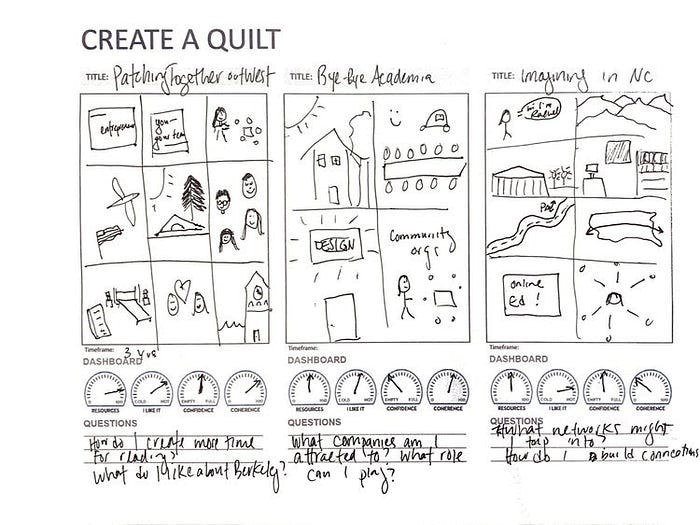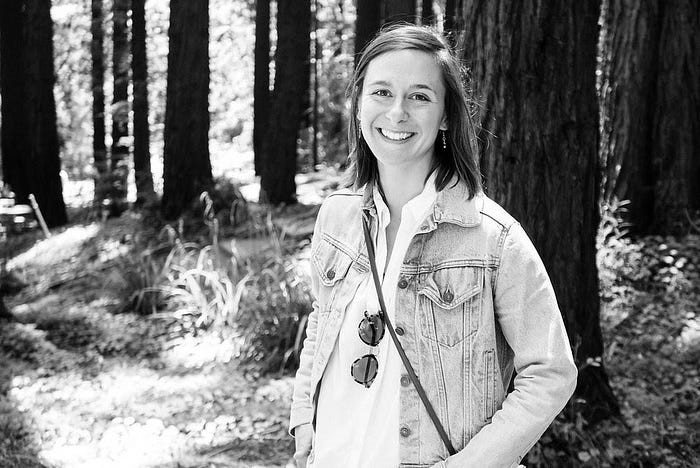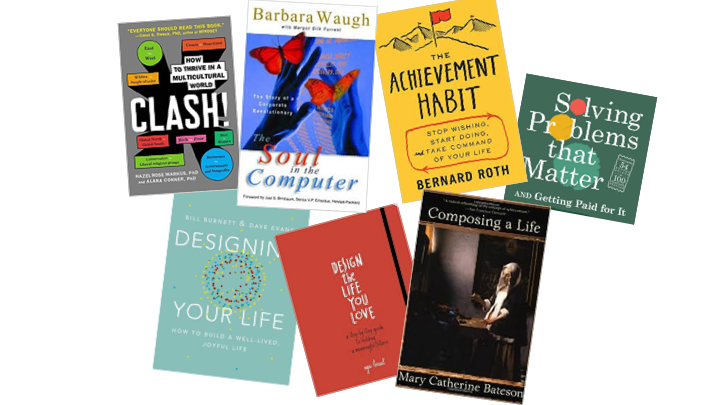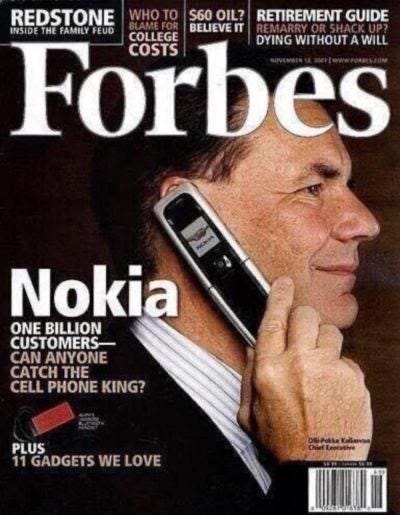
As we keep running after the newest goal, be it that promotion at work, that research paper publication or that perfect startup pitch deck, there’s a sense of urgency that haunts us. The FOMO, biting at our heels, ready to tag our existence as that of a has-been, keeps us dragging ourselves to the next milestone. And somehow, we get tired of this race that we didn’t sign up for to begin with. We sit down and wonder, what is going on? What am I really supposed to be achieving? Where does it all stop?
This quarter-life crisis, experienced by more than 3/4th of all millennials today, has more to do with the struggle of finding a purpose in their career than anything else. What compounds the problem are the old school metrics on how well we’re doing in our journey. Even though we know they don’t apply to us in this ‘insta’ world, the pressure is omnipresent still.
Rachel Dzombak has been there. As an educator in the innovation management ecosystem for leading institutions like UC Berkeley, Rachel regularly consults at the intersection of design, research and strategy. Which is why she conceptualized and built the course Designing Our Lives, inspired by Stanford’s ‘Designing Your Life’ to help young tech leaders look at the bigger picture without losing sight of what matters to them. This course is a series of workshops aimed at providing students with space to reflect on individual values as well as concrete tools for designing a fulfilling life.

The course provides students with the time and space to: (1) understand and articulate their values, (2) frame and reframe the elements of life, (3) imagine alternative futures, and (4) experiment to learn about potential life changes. It is a necessary conversation that we frequently don’t have because we are too busy, too tired, or < insert your favorite other excuse here>.
One of the items introduced in the course, that we find remarkably astute, is a framework to consider the shape of your life. It consistently emerges as one of the most useful elements from the course. Why is that, you may ask? We frequently only talk about life and career paths as a quest — a linear focused path. But what about some other notions of journeys?

While explaining about the need for Designing our Lives, Rachel takes a leaf out of the book Composing a Life by Mary Catherine Bateson.
“In a society like our own, we make a sharp contrast between creativity and standardization, yet even those who work on factory production lines must craft their own lives, whether graceful and assured or stunted and askew.”
Rachel teaches Designing Our Lives every year at Plaksha’s Tech Leaders Fellowship program to the 60 Fellows as part of the self-leadership part of the course. And the batch of 2021 has been effusive in their appreciation for the course and the effect it had on their lives. We’ve put together a few that made us smile.
“This term has forced me to be more reflective than I typically am and made me believe in the power of awareness. The art of doubling down on my strengths than shoring up weaknesses makes much more sense now. (It certainly gives more ROI)
I can’t thank Rachel Dzombak enough for teaching this course and making every session of this course phenomenal.”
Bhavika Jain
“A recent course on ‘Designing Our Lives’ by Rachel Dzombak forces me to look at the brighter side of the picture. The real beauty of this image is that, softly, it whispers to us that anyone in 13 years can be anywhere. Our destiny lies in our hands!”
Rahul Pariyani

“Our preconceived notions and previously held ideas were frequently challenged by new questions posed to us. I did not expect that I would have the courage to express and accept some of my ideologies, allowing me the freedom to pivot them later when presented with better evidence. It was a case of Constant Learning, Unlearning, and Relearning.”
Priyank Singh


